Shalom Abboudi will never forget the summer of 1965. He was a medical student in the University of Khartoum’s storied Faculty of Medicine and his class of 40 students were invited to spend the summer in Cairo. The summer before, 40 medical students from Cairo’s University of Ain Shams had visited Sudan and it was now time to re-pay the visit. In the end, 39 students went to Cairo, but Shalom had to stay behind for a simple reason: He was a Jew.
“In the application forms for Egyptian visas, you had to state your religion,” Shalom told me in a phone conversation. “There was no chance they were going to let me in.”
Egypt’s confrontation with the newly-founded State of Israel meant that tens of thousands of Jews had to leave their country forever. The writing was also on the wall in Sudan, where members of the much smaller Jewish community, which numbered around 1,000 at its height, were migrating for good.
Shalom was born in the city of Omdurman in 1944 and both his parents had also been born in Sudan. Like most Jews of the Arab world, they were forced to say goodbye to their country in those tumultuous years. For Shalom, the date came in early 1967, a few months before the Six-Day War.
Now, more than half a century later, internal changes in Sudan have opened the door to new possibilities. Earlier this year, a mass movement overthrew Sudan’s Islamist-backed tyrant Omar Bashir, who had ruled the country since 1989. Bashir was known for his close relations with the Islamic Republic of Iran (until he broke them off in 2017 to ally with Saudi Arabia) and for his hostility toward Israel. The new caretaker Sudanese government has surprised many by offering a possibility of return for its Jewish erstwhile citizens.
The new Sudanese minister of religious affairs, Nasreddin Mofarah, recently said the country was “pluralistic in its thought” and specifically mentioned the country’s Jewish minority. He called on those who have left to “come back to this country... through their right of citizenship and nationality.”
I asked Shalom if he’d like to go back to the country of his birth. No, not even for a visit, he responded.
He has many fond memories of Sudan but those belong to the past. “It is not going to happen for a simple reason,” Shalom said. “Jews traditionally don’t look behind. When they are bitten in a hole by a scorpion, they won’t put their foot back in that hole. I can never imagine lots of Jews going back to Germany, for instance.”
But he quickly added that — “to be fair to the Sudanese people” — much of his life there was not characterized by anti-Semitism.
We chatted in English but when I occasionally said a sentence or two in Arabic, it is clear that he is still fluent. “I went to the University of Khartoum after all!” Shalom says, his voice booming with pride. He spoke in detail about his time there, his graduation from medical school in 1966 and a prestigious award he received, which came with a massive sum of 100 Sudanese pounds.
But the dark memories quickly overshadow. “After the 1956 war, Sudan suffered tremendously and Sudanese Jews like my father even more,” Shalom remembered. “My father wanted a permit for importing $5,000 worth of shoes and they’d only give him a permit for $300. He learned what he needed to do. Apply in the name of a Muslim and give him two percent!”
His proud memory of his medical achievements is also overshadowed by the bitter fate that followed. His hasty departure for Europe and then the United States meant that he didn’t have all the right documents. The University of Khartoum refused to send his transcripts to the US embassy. After a lot of hard work, he couldn’t initially practice medicine in his new country. He got around that by getting a medical license in New Hampshire, serving in the US army for six years, before he was finally allowed to take the exam in New York in 1974.
Shalom now lives in Ashdod in southern Israel, having moved there from the US about 10 years ago. The city is home to Israel’s largest Moroccan Jewish community and it hosts more Georgian Jews than Tbilisi or any other city in the world. This is what Shalom has in common with many Ashdodis: coming from a place you can’t really return to.
Daisy Abboudi and Tales of a Forgotten Community
London-based Daisy Abboudi was born in 1990, years after almost all Jews had left Sudan. But she is very proud of her Sudanese heritage — proud enough to have started a project called “Tales of Jewish Sudan,” which has attracted much media attention in recent years and was the subject of a well-circulated report by the Associated Press in 2017. This is how I came across Daisy, although I later learned that her father was a cousin of Shalom. Small world, or a small community of Sudanese Jews, I guess.
Daisy has worked closely with the community to gather and tell its stories. She is publishing a book and has already launched a website that includes many personal memories of Sudanese Jews and even recipes for such Jewish Sudanese delicacies as molokhia, beetroot kobeba, baklawa (or ‘ba’alawa’ as they call it) and, using the signature ingredient of the country, peanut butter dip, also known as dakwa.
The only major book on the history of Sudanese Jews came out in 1997. Jacob’s Children in the Land of the Mahdi: The Jews of the Sudan was written by Eli Malka whose father, Rabbi Solomon Malka, visited Sudan in 1906, some seven years after the advent of Anglo-Egyptian rule that put an end to the rule of al-Mahdi, a messianic Islamist leader who had forced Jews to convert to Islam. Although Sudan has long counted Jews among its denizens, much of the Jewish community traced their migration to Sudan to the 20th century where an economically flourishing country attracted them in professions such as trade and textile merchandise.
Post-war Nasserism and nationalism drove out most of the Jews and even a handful who stayed back had to leave after the nationalization of the 1970s led by the left-wing government of Jaafar Nimeiry. Some went to Israel but many more found home in the US, the UK or Switzerland.
Unlike Shalom, Daisy would like to at least go back for a visit, although she is not sure when this will actually be possible. “I think the statement by the minister is a positive first step as is any move toward a more open and tolerant society,” Daisy told me on the phone, making clear that she speaks only for herself, not the community.
“For my generation, we always felt we were descendants of a forgotten community,” Daisy continued. “People would look at you like [you were] crazy when you said you were from Sudan, even within the Jewish community.” The community has also naturally lost members of the next generation due to intermarriage. Many Sudanese Jews married people outside the community and so the members of the next generation usually have only one or two Sudanese grandparents (although all four of Daisy’s were Sudanese, three of them having been born in Sudan and one in Egypt.)
Daisy thinks many would love to go back, at least for a visit. She herself knows what she’d do in her first 24 hours in Sudan.
“The cemetery is still there, although now it is basically a rubbish dump,” she said. “I’d like to go there and help clean it up. It is not in great shape. My great-grandparents are buried there and I’d like to visit it. Beyond that, I’d like to visit and get to know the country and meet its people.”
On Daisy’s website, many Jews remember their gentile Sudanese neighbors.
Another Sudanese Jew, Esther, speaks of her “good life there” and says: “The Sudanese people are not like any others. They are very kind, very loyal, very good. We grew up with the Sudanese. We ate with them, we slept with them in their houses, they slept with us in [our] houses.” Her friend Lila remembers something similar: “She is right. The Sudanese people, they are so warm, so considerate.” After 55 years, Lila is still in touch with two of her schoolmates in Sudan, who she found through Facebook. “I am still chatting to her on my WhatsApp,” she said.
If a democratic Sudan rises through the ashes of Bashir’s nasty dictatorship, will the Sudanese Jews have a chance to visit the gravers of their ancestors and mingle with the people they once called neighbors? It is not hard to guess that this is question on the minds of Lila, Esther and Daisy.
Read more about Tales of Jewish Sudan
visit the accountability section
In this section of Iran Wire, you can contact the officials and launch your campaign for various problems




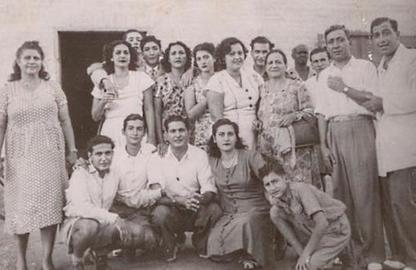
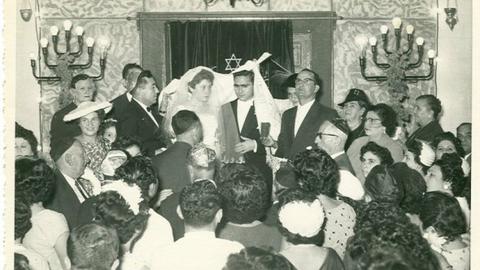

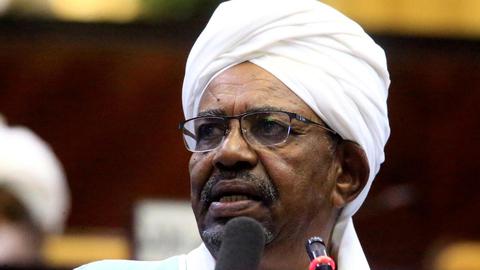
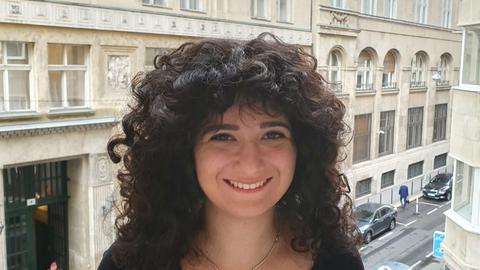
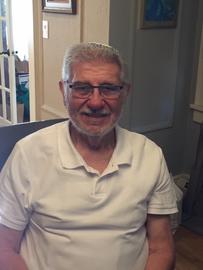
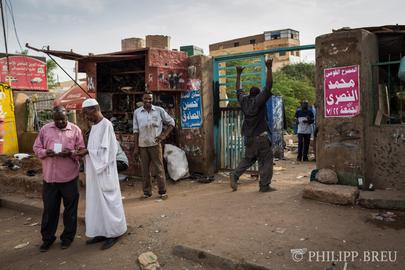
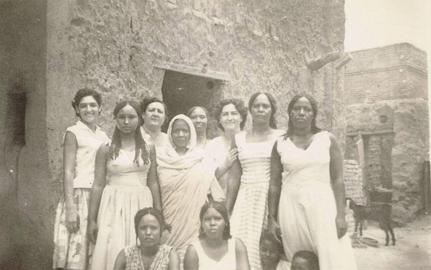




















comments